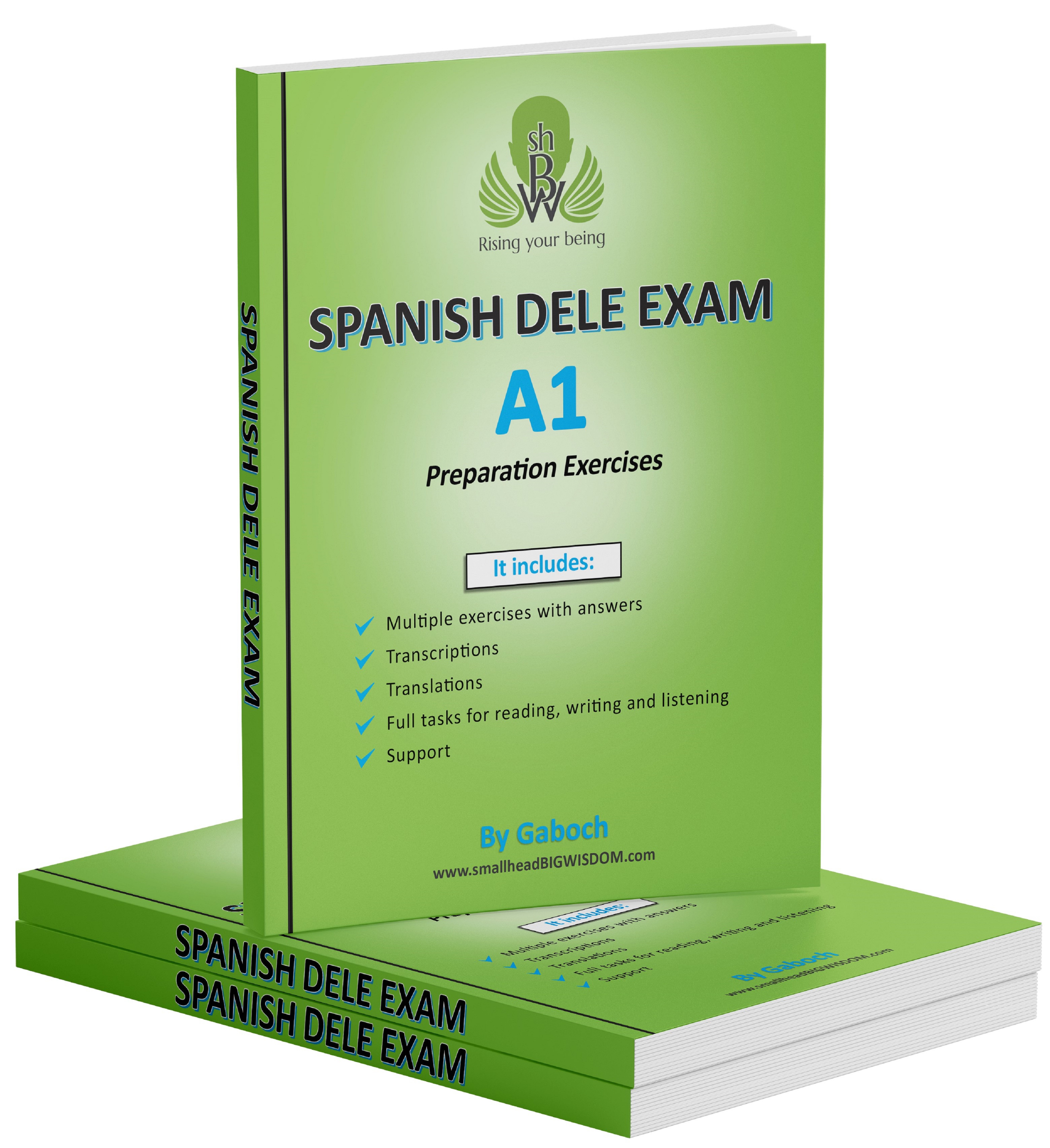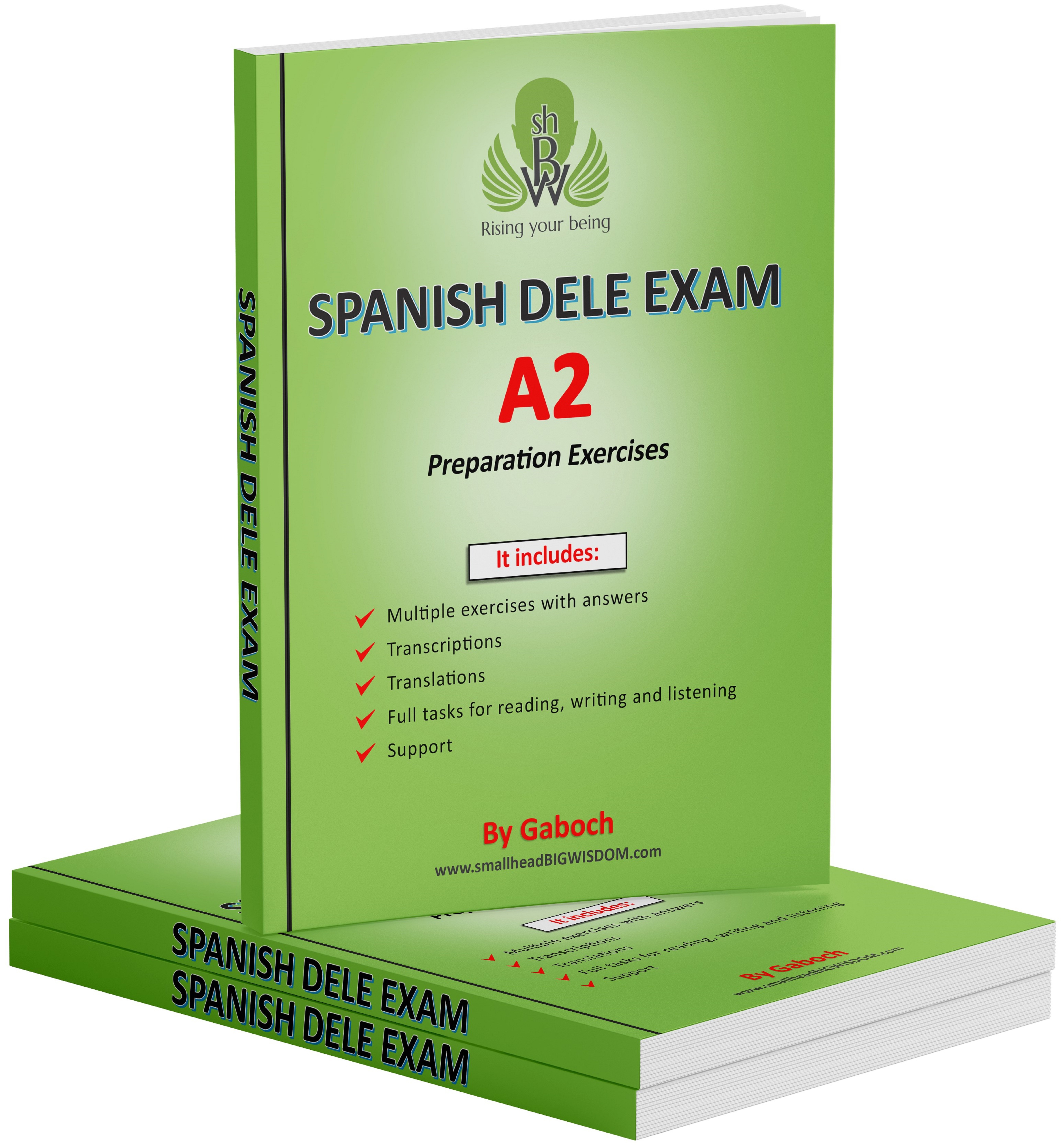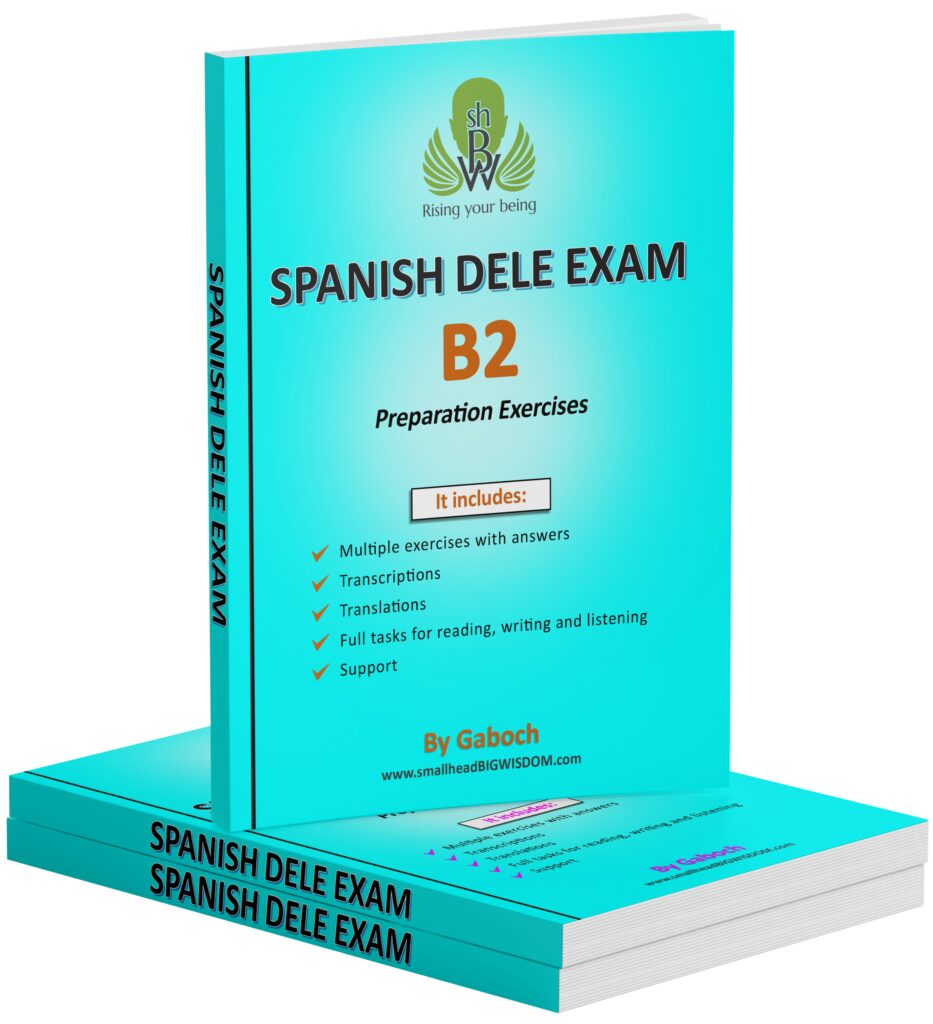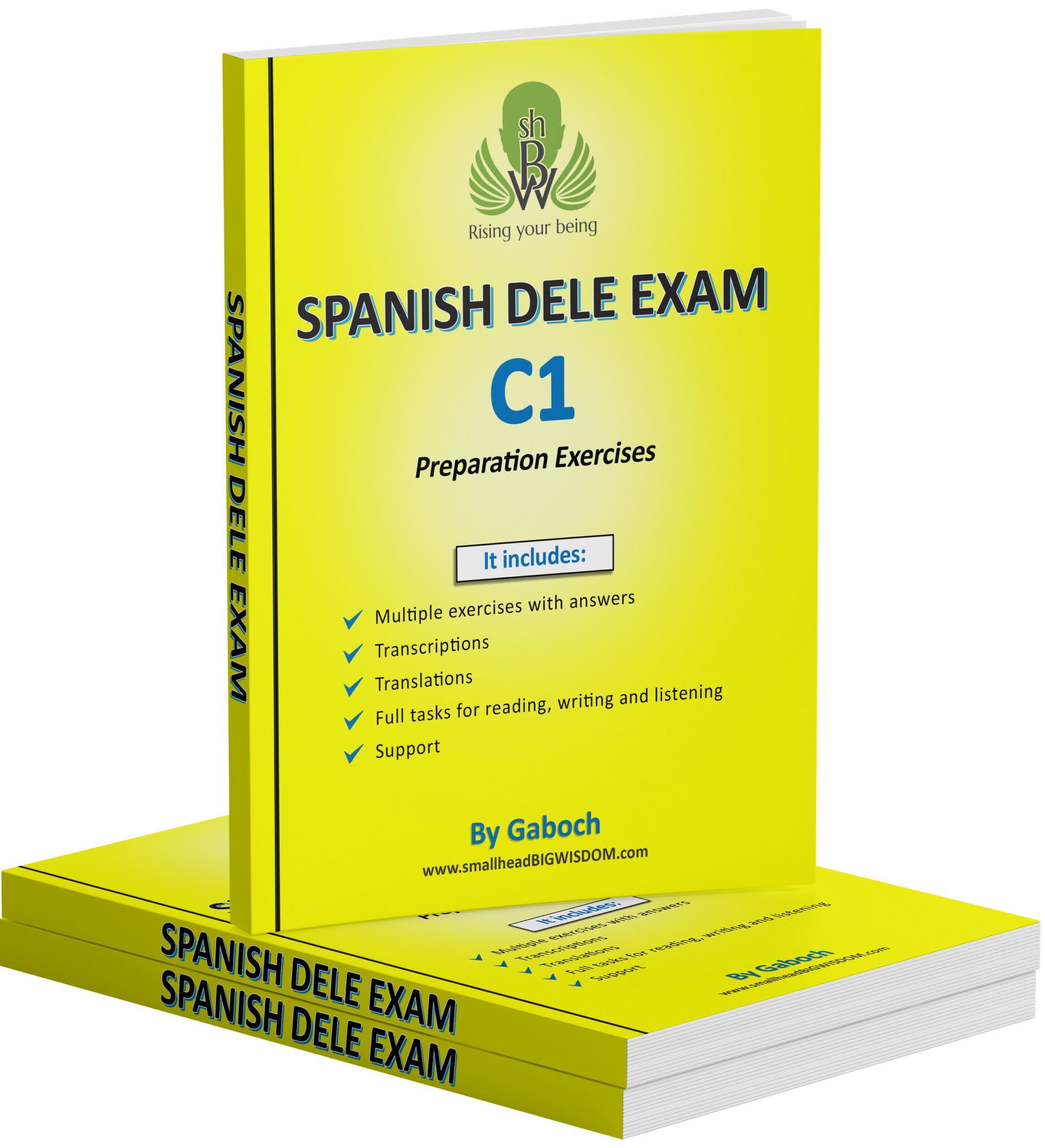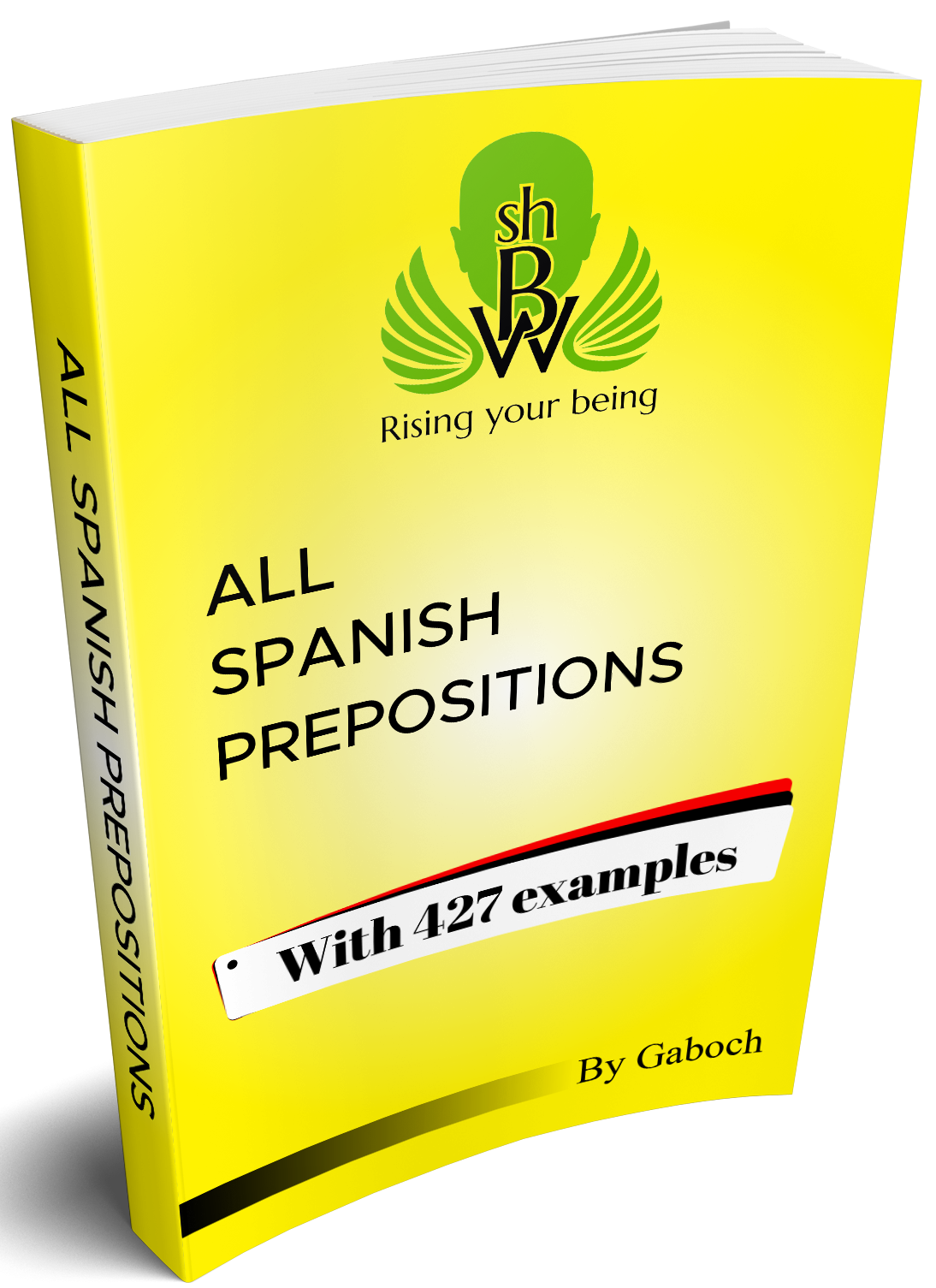smallhead BIGWISDOM
Rising your being
Exercises with POR QUE
POR QUE
It is used in two cases:
FIRST CASE:
1) La preposición “por” + el pronombre relativo “que”. Este caso incluye el uso de los artículos definidos “el”, “la”, “los”, “las”. (The preposition ‘por’ + the relative pronoun ‘que’. This case includes the use of the definite articles “el”, “la”, “los”, “las”.)
Examples:
- Hay varias razones por las que ella no pudo ganar la competencia. (There are several reasons for which she couldn’t win the competition.)
- La razón por la que no fui a la fiesta fue el trabajo. (The reason why I didn’t go to the party was work.)
- Esa es la calle por la que pasamos ayer. (That is the street we passed through yesterday.)
- El libro por el que preguntas está agotado. (The book you’re asking about is sold out.)
- El puente por el que cruzamos está en reparación. (The bridge we crossed is under repair.)
- El tema por el que discutimos fue irrelevante. (The topic we argued about was irrelevant.)
- Esta es la razón por la que decidí renunciar. (This is the reason why I decided to quit.)
- La ciudad por la que viajamos es muy pintoresca. (The city we traveled through is very picturesque.)
- Es el proyecto por el que tanto luchaste. (This is the project you fought so hard for.)
- La película por la que esperábamos fue un éxito. (The movie we were waiting for was a success.)
- El parque por el que corríamos estaba lleno de flores. (The park we ran through was full of flowers.)
- Esa es la ruta por la que prefiero ir al trabajo. (That is the route I prefer to take to work.)
- Las razones por las que lo hiciste son comprensibles. (The reasons why you did it are understandable.)
- La ventana por la que se escapó estaba abierta. (The window through which he escaped was open.)
- El momento por el que todos esperaban finalmente llegó. (The moment everyone was waiting for finally arrived.)
- El camino por el que nos desviamos es peligroso de noche. (The road we took a detour through is dangerous at night.)
- La razón por la que no vine antes es complicada. (The reason why I didn’t come earlier is complicated.)
- El problema por el que me llamaste ya está resuelto. (The problem you called me for is already solved.)
- Los motivos por los que se marchó siguen siendo un misterio. (The reasons why he left are still a mystery.)
- El edificio por el que pasamos es patrimonio histórico. (The building we passed by is a historical landmark.)
- La persona por la que preguntaste no está disponible. (The person you asked for is not available.)
- El parque por el que solíamos pasear ha cambiado mucho. (The park we used to walk through has changed a lot.)
- Ese es el motivo por el que decidieron mudarse. (That is the reason why they decided to move.)
- La clase por la que te esforzaste obtuvo buenos resultados. (The class you worked hard for achieved good results.)
- El sitio por el que caminamos anoche estaba desierto. (The place we walked through last night was deserted.)
SECOND CASE:
2) La preposición “por” + la conjunción subordinante “que”. Este caso aparece con verbos, sustantivos o adjetivos que requieren un complemento introducido por “por” y llevan una oración subordinada con “que”. (The preposition ‘por’ + the subordinating conjunction ‘que’. This case appears with verbs, nouns, or adjectives that require a complement introduced by ‘por’ and are followed by a subordinate clause with ‘que’.)
Examples:
- Los profesores votaron por que no se cambiara el examen final. (The teachers voted for the final exam not to be changed.)
- Están luchando por que se respeten sus derechos. (They are fighting for their rights to be respected.)
- Abogaron por que se incluyera en la lista. (They advocated for it to be included in the list.)
- Insistió por que lo reconsideraran. (He insisted that they reconsider it.)
- Votamos por que el proyecto continuara. (We voted for the project to continue.)
- Están preocupados por que no llegue a tiempo. (They are worried that he won’t arrive on time.)
- Están esperando por que decida qué hacer. (They are waiting for him to decide what to do.)
- Los estudiantes protestaron por que mejoraran las condiciones. (The students protested for the conditions to improve.)
- Están contentos por que finalmente lo aprobaran. (They are happy that it was finally approved.)
- Pidieron por que se respetaran las reglas. (They asked for the rules to be respected.)
- Lucharon por que se redujera la jornada laboral. (They fought for the workday to be shortened.)
- Está preocupado por que no se terminen los trabajos a tiempo. (He is worried that the work won’t be finished on time.)
- Intercedió por que le dieran otra oportunidad. (He interceded for them to give him another chance.)
- Lucharon por que se mantuvieran las tradiciones. (They fought for the traditions to be preserved.)
- Pidió por que no se malinterpretaran sus palabras. (He asked for his words not to be misinterpreted.)
- Se esforzó por que todo saliera perfecto. (He tried hard for everything to turn out perfectly.)
- Rogaron por que se detuviera la demolición. (They begged for the demolition to be stopped.)
- Optaron por que no hubiera más cambios. (They opted for there to be no more changes.)
- Exigieron por que se respetara la decisión tomada. (They demanded for the decision made to be respected.)
- Apostaron por que su equipo ganara el torneo. (They bet on their team to win the tournament.)
- Lucharon por que se cumpliera el acuerdo. (They fought for the agreement to be fulfilled.)
- Solicitaron por que se hiciera una revisión completa. (They requested a complete review to be done.)
- Insistieron por que el proyecto fuera revaluado. (They insisted on the project being re-evaluated.)
- Abogaron por que se tomaran medidas inmediatas. (They advocated for immediate measures to be taken.)
- Se preocuparon por que no llegara a salvo. (They were worried that he wouldn’t arrive safely.)
Get the book about 1100 English-Spanish Cognates!
Bonus: Audio pronunciations
Get it now!
(See Table of Content)
